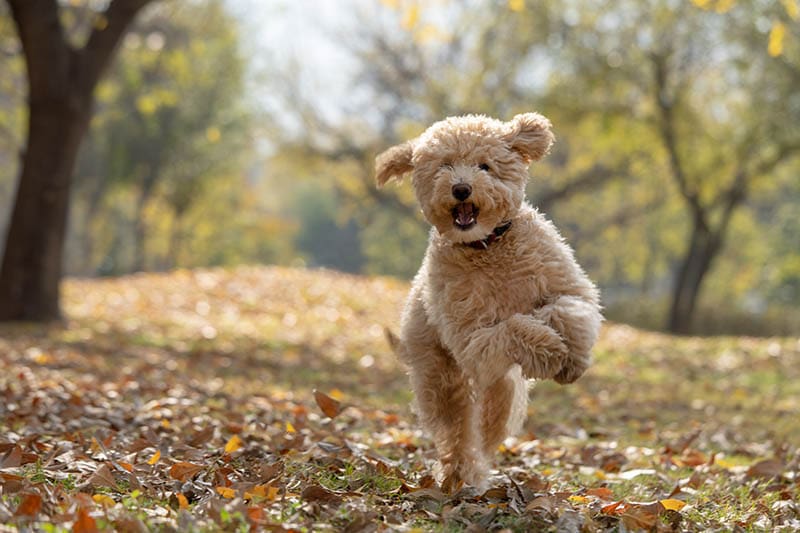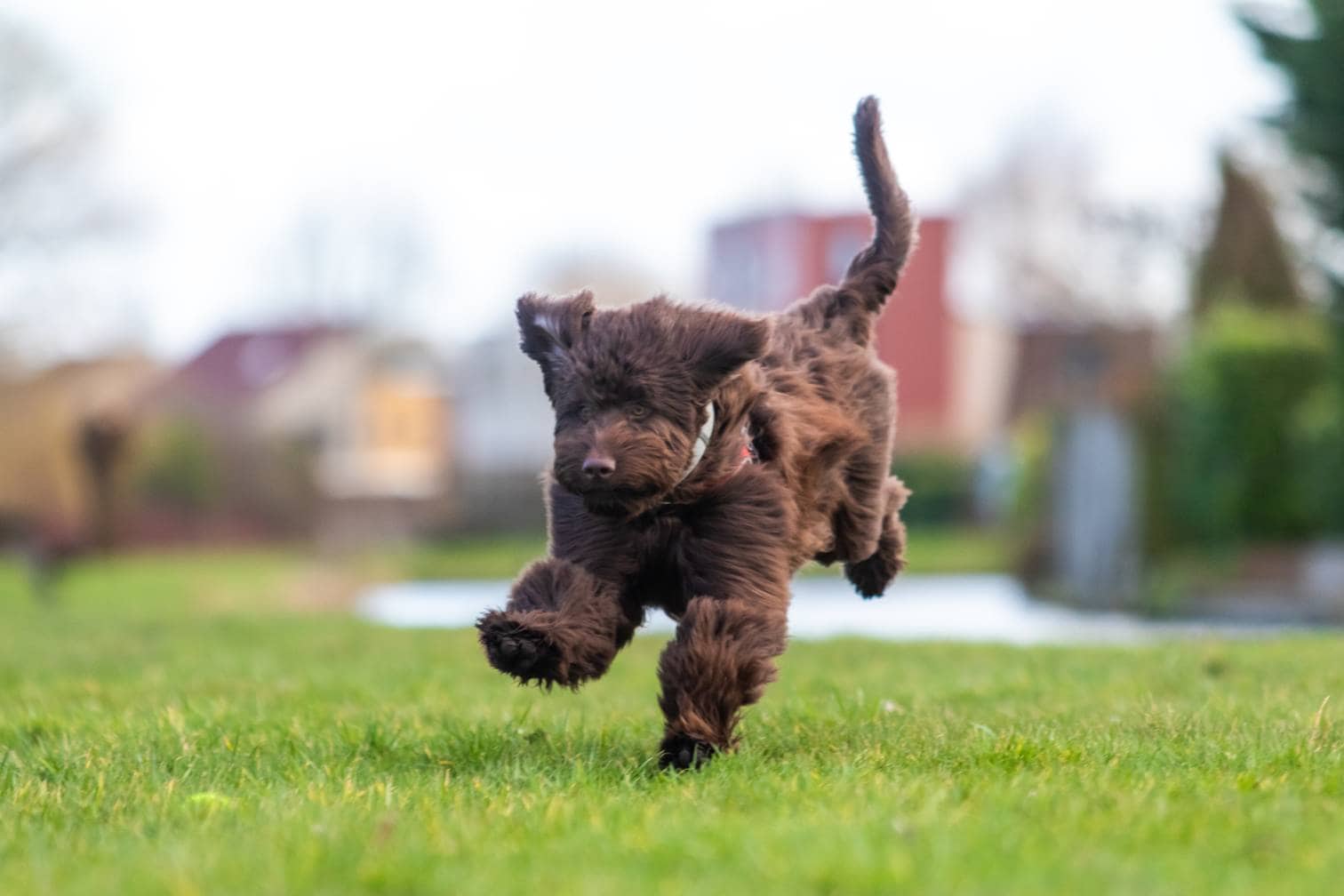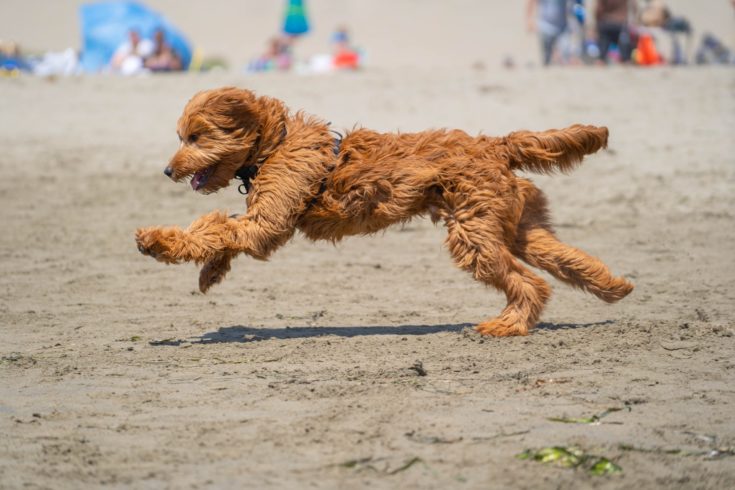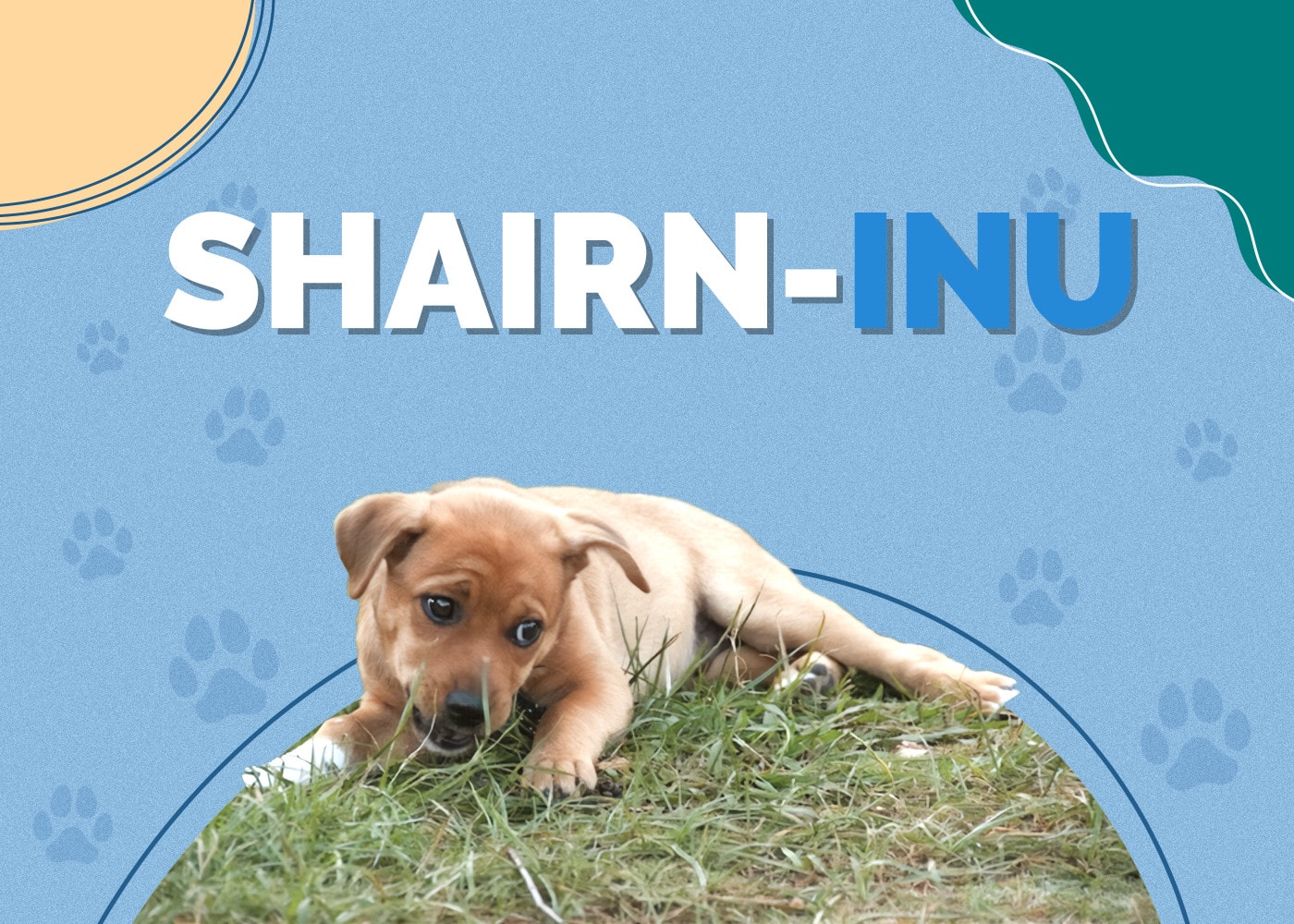When Do Goldendoodles Calm Down? Breed Facts and FAQs

Updated on

Click to Skip Ahead
If you are the proud new owner of a Goldendoodle, you know what amazing companions they make. They are playful, high-spirited, friendly, and affectionate. However, they are also full of energy and have an excitable temperament. While it is infectious and brings zest into the family, you may sometimes find it a little overwhelming and need guidance on managing it.
Don’t despair! Your Goldendoodle will eventually calm down as it reaches adulthood, and you can help it with the correct guidance and training. In this article, we’ll discuss Goldendoodles puppies, Goldendoodles with pent-up energy, and ways in which you can help calm them down.
Why Do Goldendoodle Puppies Have So Much Energy?
It is well known that bringing a puppy into your family comes with a lot of patience as they can be little balls of energy when they are young, but Goldendoodles puppies are particularly energetic. This may make you feel tired and concerned about whether and when it will ever calm down. Well, you will be relieved to know that just like all puppies, your Goldendoodle will calm down as it ages and matures.
It is helpful to be prepared for a Goldendoodle puppy. For the most part, you should expect excitable behavior such as licking, jumping, running wildly, and endless curiosity. Unfortunately, the curious nature can lead to “naughty” behavior, especially if your pup doesn’t receive enough exercise and attention, or even on the contrary, if they receive too much attention or are too excited. Remember, your puppy is exploring the world for the first time, and just like kids, they will be testing their boundaries.

At What Age Do Goldendoodles Calm Down?
There is calm at the end of the storm! Your Goldendoodle should start calming down anytime between 12 and 18 months. This is where the puppy phase transitions into adulthood. However, you can still expect some occasional energetic behavior. Don’t be confused by your puppy losing its puppy teeth at about 6–8 months of age; they will still be energetic, albeit a bit less. Some dogs can take up to a year to be noticeably calmer.
As your Goldendoodle goes through its life stages, it will change, and so will its energy levels.
- 0–3 months: This is the most energetic and testing stage. They will usually explore using their mouths, and you can expect jumping, running, and play fighting. This is also when they start to develop relationships with other dogs and their human family, and these early experiences will shape how your Goldendoodle interacts in the future. This is the golden window of opportunity for training where you can begin to train your dog in obedience, and this window shouldn’t be missed.
- 3 months: At this stage in late puppyhood, they are still full of energy, but that energy will gradually reduce. Your Goldendoodle won’t feel like a baby anymore. However, it will still think and respond like a puppy. They are still likely to get over-excited, so it’s important to stay consistent in your training.
- 6 months: This is considered the adolescent stage, where your pup will start to exhibit more adult-like behavior. You will be able to redirect their negative behavior more easily, given that you have started training, and they will be more aware of their boundaries. However, their playfulness may increase, and this is where exercise and mental stimulation will be very important.
- 12–18 months: This is when your Goldendoodle will reach adulthood and should start calming down. They will begin to transition from puppyhood. However, you need to remember that this is a process and be patient anytime your dog exhibits puppy-like behavior. Most of your Goldendoodles life will be spent in the adult phase, where it will gradually calm down.
How to Know if Your Goldendoodle Has Pent-up Energy
If your Goldendoodle is beyond its puppy stage and is still unusually energetic, it likely has energy pent up from insufficient physical activity throughout the day.
- Excessive barking: If your Goldendoodle barks excessively, it could indicate that it is not stimulated enough. It is a way to get attention and is the best way it knows how to communicate. If your Goldendoodle has been fed, been to the toilet, has water, and there is no physical trigger for its barking, it could be due to pent-up energy and under-stimulation.
- Destructive behavior: This is a classic sign of boredom in dogs. Destructive behavior can include digging, chewing, and zooming around, and they usually exhibit these kinds of behavior when they have pent-up energy.
- Leash pulling: If your Goldendoodle is somewhat leash trained and pulls on its leash, and it feels like it’s taking you for a walk, it could be over-excited about getting out because it has a lot of pent-up energy.

Will Neutering My Goldendoodle Make It Calmer?
There is a common belief among dog owners that getting their dog neutered will help calm it down, which holds some truth. While getting a dog neutered won’t change its personality, it can help decrease testosterone and sexual behaviors such as mounting. It can have an impact on their mood and behavior and reduce aggression. Having your dog neutered has been proven to make it calmer over time.
Tips for Dealing with a Hyper Goldendoodle
Early training and socialization are the keys to a well-mannered and well-rounded dog and are essential in managing your Goldendoodle’s behavior. Socialization will familiarize your Goldendoodle with new surroundings, dogs, and strangers. Obedience training will help your Goldendoodle take direction and obey basic commands. Positive reinforcement is the best strategy as you reinforce the wanting behavior with something positive such as treats or praise. These are the critical strategies for managing your Goldendoodle’s behavior, but some other tips that can help include:
- Not rewarding unwanted behavior: If you make any fuss or give attention to unwanted behavior, you are unintentionally training them too, because they learn that the particular behavior will get them attention. Only pay attention once your dog has calmed down.
- Adequate exercise and mental stimulation: Make sure your Goldendoodle gets enough exercise and playtime daily. This can include walking, running, playing fetch, and interactive feeding bowls.
- Be calm: If you want a calm dog, you must be a calm owner. Dogs are sensitive animals and will naturally match your energy levels. If you are overly excited, your dog will feed off that energy and display the same behavior. However, if you are consistently calm, you will set a good example.

Conclusion
If your Goldendoodle is in its early puppy stage, your life is anything but dull. The good news is that your pup will begin to calm down as it transitions into adulthood at 12 to 18 months. Each dog is different, however, and some factors come into play with a high-energy dog. Early socialization and training are critical to a well-behaved and well-mannered dog. You need to expose it to new environments, people, and other dogs as early as possible and teach it basic commands so that it learns to obey. As your Goldendoodle gets older, it is essential to provide adequate exercise and mental stimulation to avoid boredom and unwanted behaviors.
Featured Image Credit: SoySendra, Shutterstock










